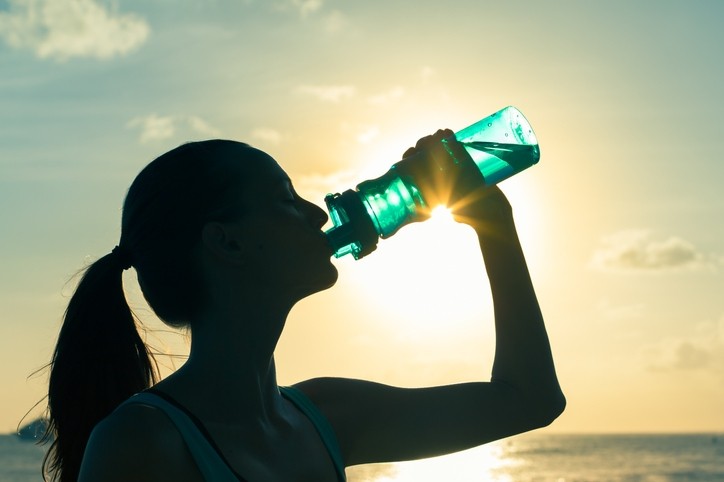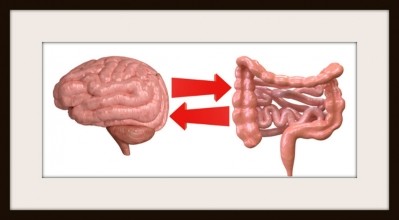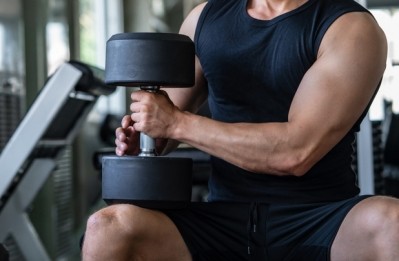How oral microbiome alteration impacts sports nutrition: Study

Several studies have investigated the difference in the composition of the gut microbiota between those who are highly physically active and a range of other populations. Results found a higher abundance of health-promoting bacterial species, increased microbiome diversity, and greater relative increases in metabolic pathways (e.g. amino acid and antibiotic biosynthesis and carbohydrate metabolism) and fecal metabolites (e.g. microbial produced SCFAs; acetate, propionate, and butyrate) are associated with enhanced fitness.
While studies have primarily focused on the gut microbiome, the role of the oral microbiome may be just as important -- at least when it comes to athletic performance.
Researchers in the United Kingdom and Spain examined the impact of physical exercise on the oral cavity, shedding light on the key role saliva buccal microbiota plays.
The study, published in the journal PharmaNutrition, was led by Raúl Bescós, professor of Physiology at the University of Plymouth with the assistance of Patrícia Casas-Agustench, professor at the UOC Faculty of Health Sciences and associate researcher at the University of Plymouth (UOC).
"There were indications of the connection between sport and oral microbiota, but also a lot of gaps, which is why we wanted to review what impacted on oral microbiota and how that could affect the benefits of sport," said Bescós, the first author of the study.
Nitrates
Studies suggest eating nitrates in grains like amaranth and vegetables like beetroot have an impact on athletic performance and cardiovascular health.
The current study illustrates how the nitrate is a molecule that we either consume in food or produce endogenously during physical activity. It acts as a nutrient for the bacteria in the mouth, which is then converted into nitrite. This nitrite increases blood flow to the muscles and reduces blood pressure.
The benefits of good oral health for athletes is especially important. According to Bescós, it could make or break performance.
“Previous studies have shown that if you inhibit the activity of the bacteria in the mouth, the cardiovascular benefits of sport are reduced," said Bescós.
"The best way to look after oral microbiota and improve sporting performance and cardiovascular health is to eat more vegetables that are rich in nitrates, but also to chew more. It helps you to salivate, and saliva is essential for regulating the pH in the mouth, and the composition and activity of bacteria in the mouth. So, products rich in fibre, like fruit, vegetables and nuts should be included in your diet," the authors advised.
The report also noted that the majority of bacteria in the mouth are essential for health and very few bacteria produce illnesses such as caries or periodontitis.
Hydration
Interestingly, observational studies suggest that the prevalence of oral illnesses among elite athletes is similar to or greater than it is among the general population.
Casas-Agustench, co-author of the study, said the reason behind this could be related to diet and hydration.
"Sportsmen consume a lot of drinks containing sugar and acid that can affect oral health and the abundance of bacteria. They also consume a lot of carbohydrates, including products with a lot of sugar like energy bars and gel, that can alter the microbiota in the mouth," said Casas-Agustench.
Beyond diet, keeping the mouth hydrated is also key. Dryness of the mouth, which commonly occurs while running or cycling, can affect the diversity and abundance of oral microbiota and reduce protection for the teeth.
Keeping food down is also key. "Some athletes often vomit as a result of the anxiety they feel before competing or during competitions because of the effort they are making, and that leads to alterations to the pH level in their mouths, erodes the enamel and alters the composition of the bacteria," explained Casas-Agustench.
While vomiting may lead to the use of mouthwash, the researchers say avoid the need to swish. The use of antibacterial mouthwashes, such as those containing chlorhexidine, can also throw the oral microbiome off balance. "They inhibit the bacteria in the mouth and it has been observed that when chlorhexidine is used, the positive effects of exercise on blood pressure are drastically reduced," said Bescós.
The mouth-gut axis
The researchers also point out that there is a close relationship between oral and intestinal microbiomes. Humans swallow about a liter of saliva every day, and this saliva contains a large amount of bacteria. While many are destroyed by the acids in the stomach, others can resist and reproduce, such as the stomach ulcer-causing Helicobacter pylori.
Given the relationship, Bescós and Casas-Agustench said oral health affects intestinal health and vice versa.
Oral health = athletic wealth
"Oral microbiota is essential in the cardiovascular response to physical exercise. If the mouth is healthy, the bacteria help to break the nitrates down into nitrites. Otherwise, we lose much of the benefit of exercise,” said Bescos.
Source: PharmaNutrition
Vol 14, Dec 2020, 100230 DOI: doi.org/10.1016/j.phanu.2020.100230
“Modulation of oral microbiota: A new frontier in exercise supplementation”
Authors: R. Bescos et al.
















